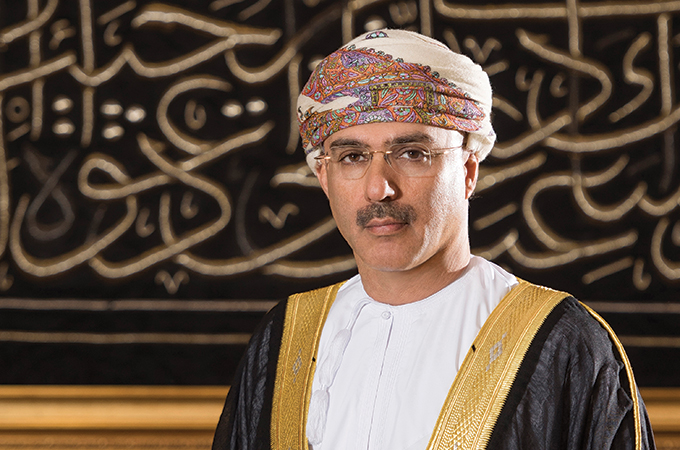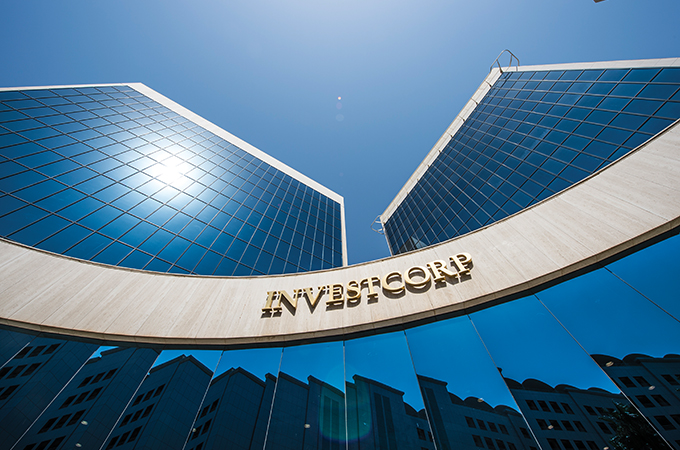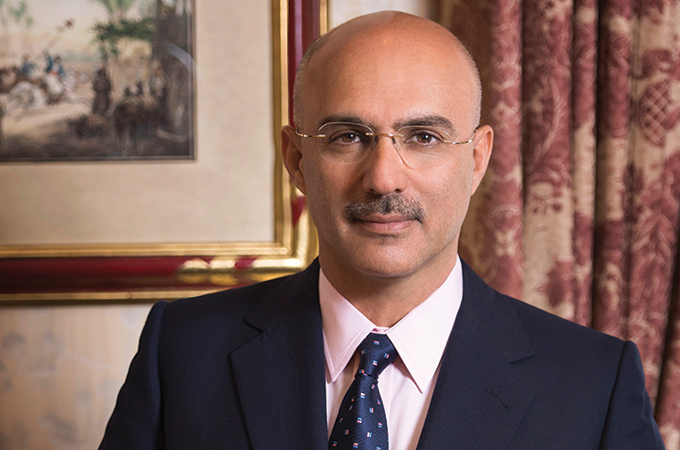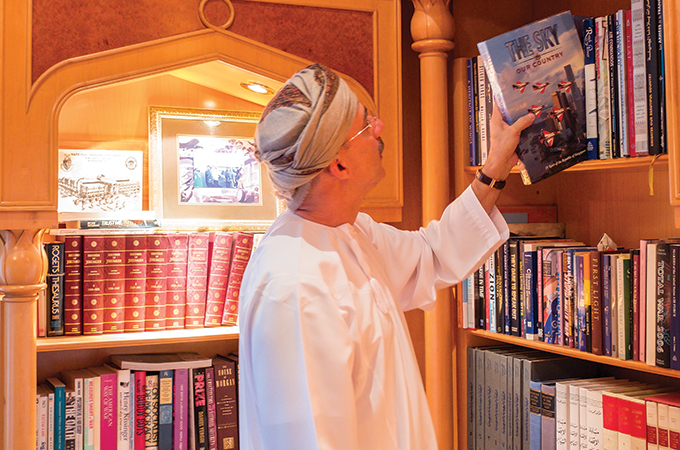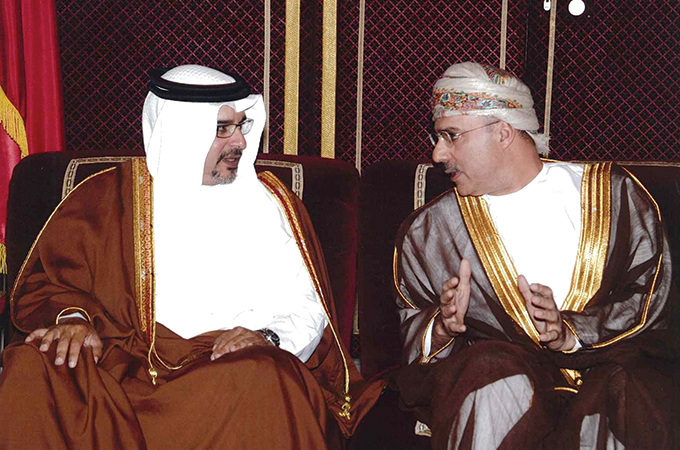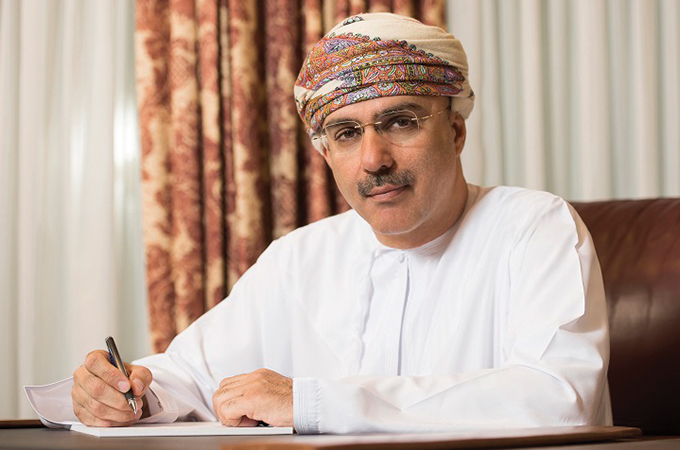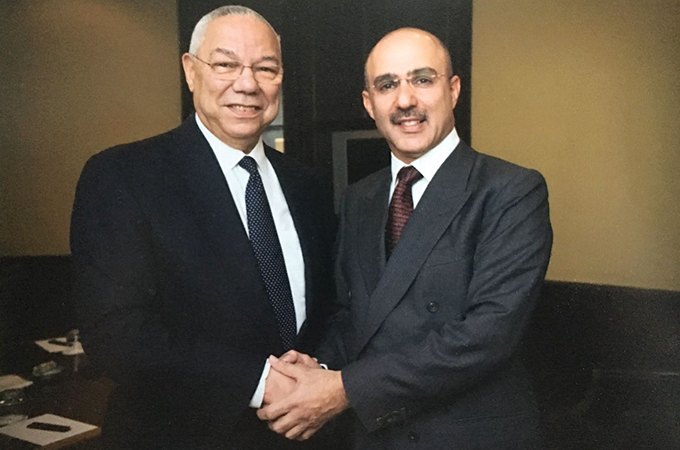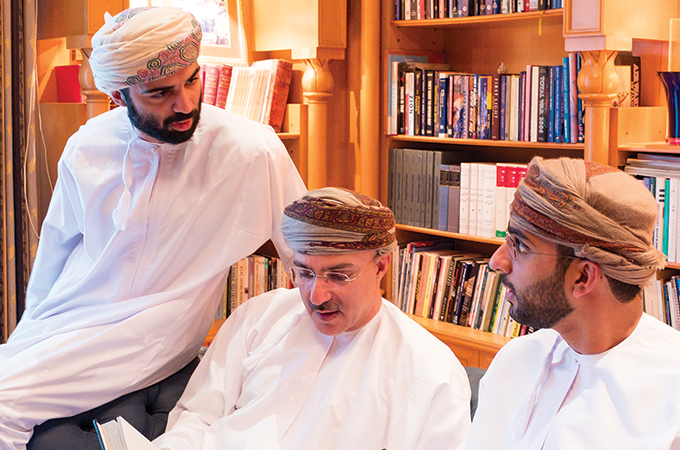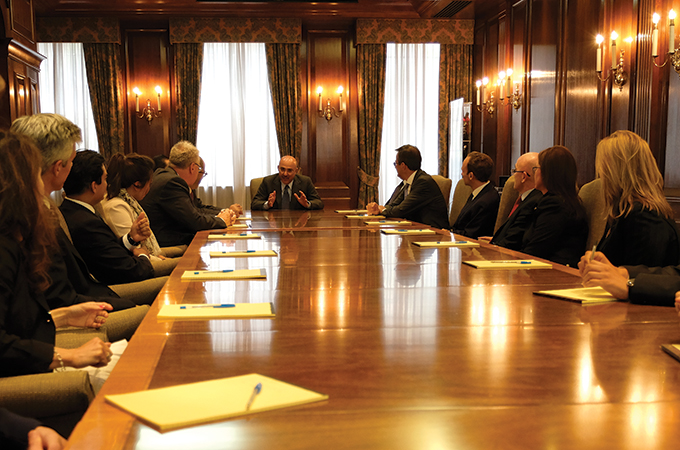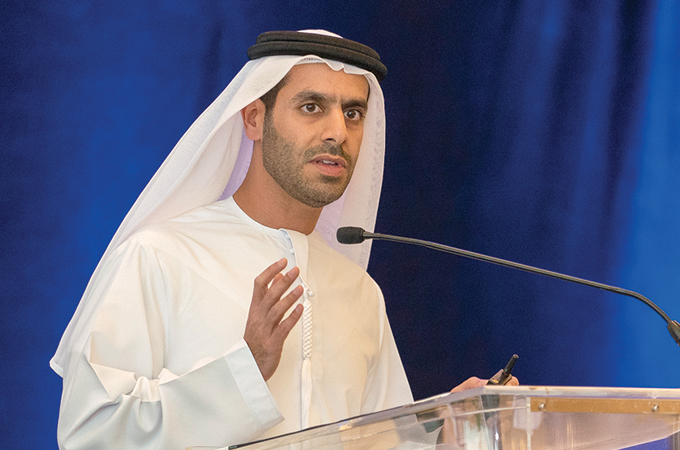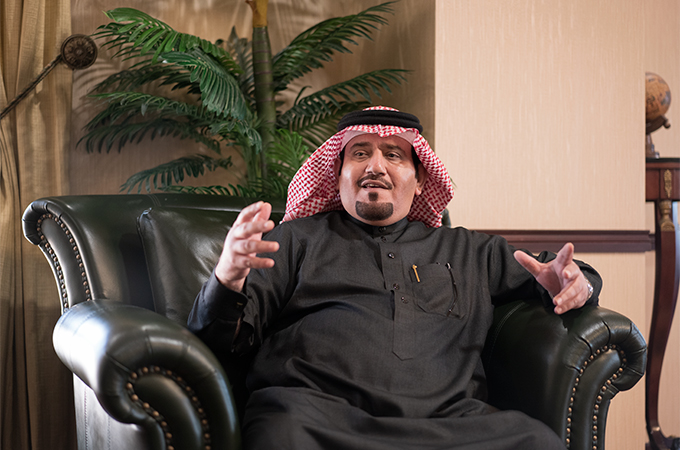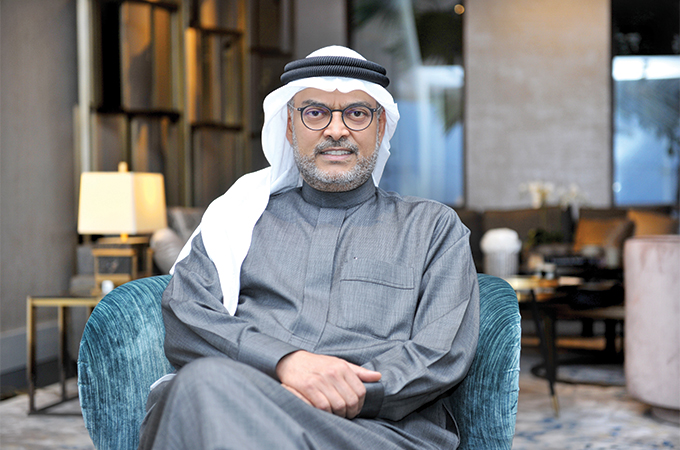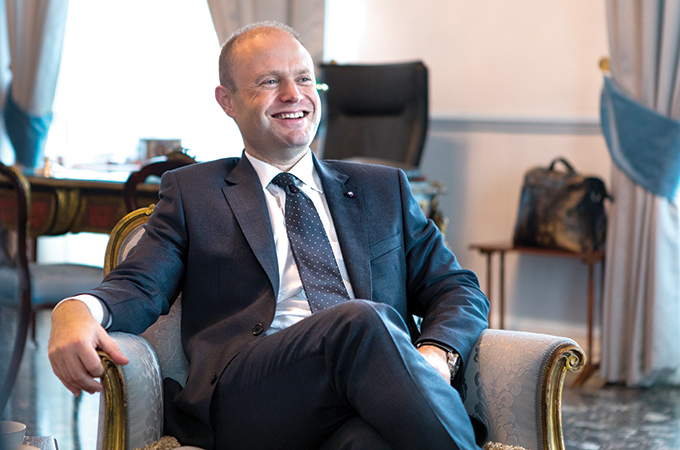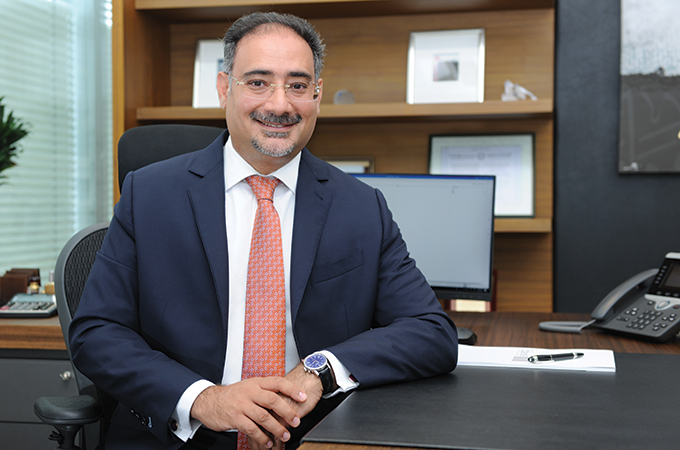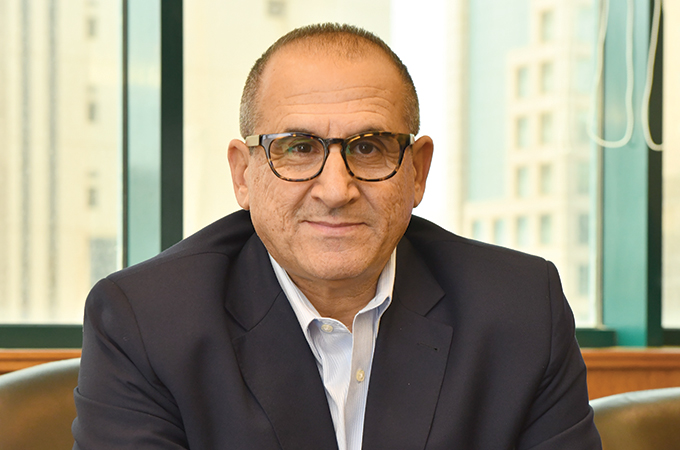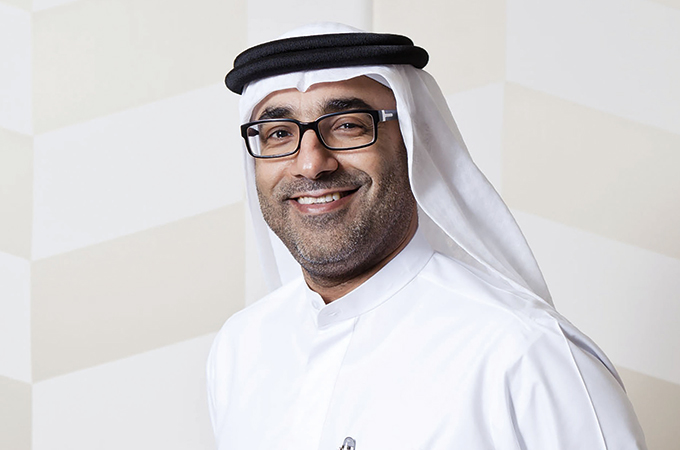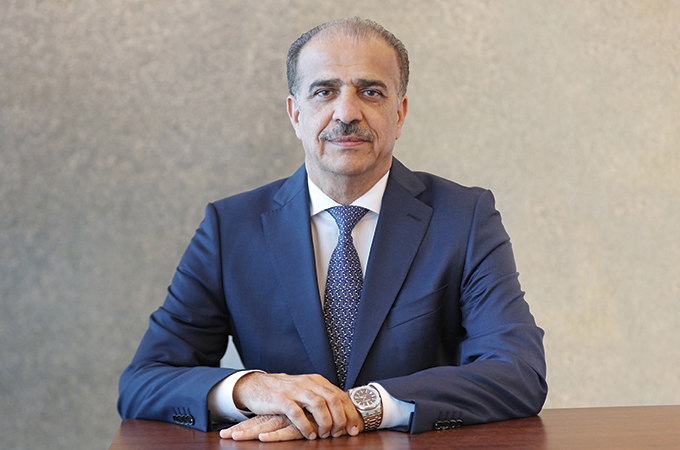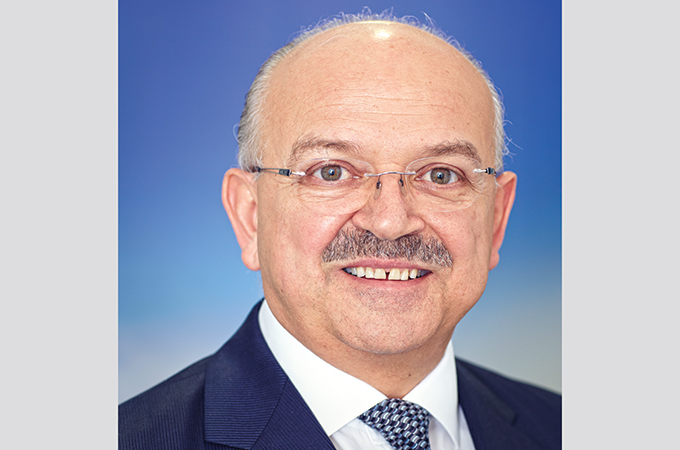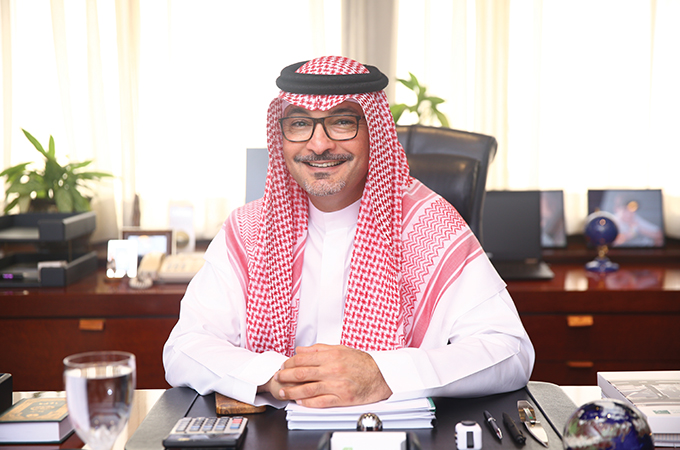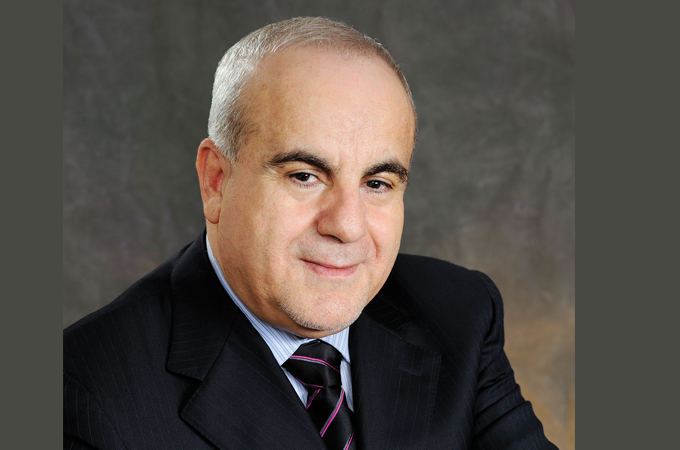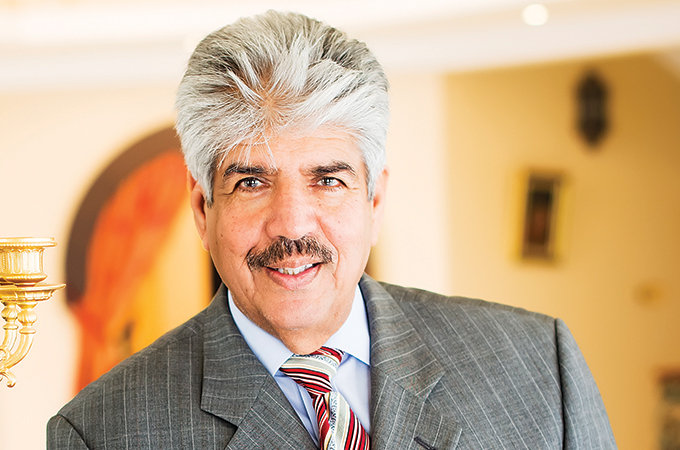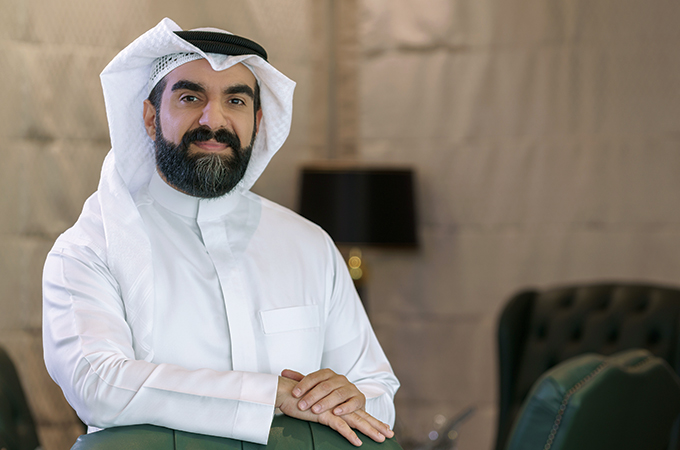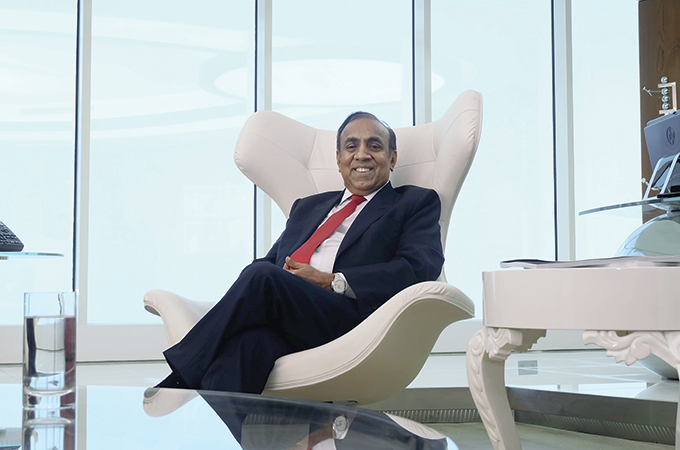Spring/Summer 2018
Defence and finance are two extremely different worlds for most. But Mohammed Alardhi, a former Chief of the Royal Air Force of Oman, says the leadership lessons learned in uniform come in handy nearly every day in his role as the Executive Chairman at Investcorp
As a young boy of seven, he watched planes land on a dirt strip near his home and dreamed of becoming a pilot one day. His fascination for planes and determination to achieve his dreams not only propelled Mohammed Alardhi to become a fighter pilot, but also the Chief of the Royal Air Force of Oman.
However, when he hung up his boots after a long and illustrious career, the world of finance beckoned Alardhi and he decided to tread a path not many military officers have attempted before. The experiences and opportunities offered by the high-flying job put him in good stead for a top-flight position in the finance sector.
Today, Alardhi serves as the Executive Chairman of Investcorp, a leading alternative investment firm. In addition, he is also the Chairman of Oman’s Bank Sohar, overseeing the bank’s growth strategy and its corporate social responsibility programmes, especially those focusing on youth.
“As Chief of the Omani Air Force, I gained exposure to new experiences and opportunities; the Air Force is not just a fighting force, and my job wasn’t just about leading the pilots. The Air Force is a microcosm of Oman itself. I found myself dealing with people, planning, budgets, education, training, and so on. I engaged with young people fresh from school and was able to help mould them into productive and responsible citizens.”
Recounting his move to the finance industry, the celebrated military officer, who is a recipient of the coveted Order of Oman, says: “I’ve been blessed to lead a life that has allowed me to mix private and public service and I am proud to have served my country and my people in the most honoured way. Today, I’m involved in the world of finance which is quite different to military life. However, in practice, there are some similarities.”
“The adrenalin rush and the thrill of being thousands of feet up in the air and yet still knowing that I have a duty to serve, protect and honour my country – that was truly a life lesson. It grounds you, humbles you and reminds you that there is always a much larger purpose to what you are doing. I take those lessons with me into the boardroom,” he says proudly.
Alardhi received much of his education in the United Kingdom, at the Royal Air Force Military Academy at Cranwell. In addition, he went to the National Defense University in Washington DC and later, towards the end of his military career, to Harvard University’s John F Kennedy School of Government. There he received a Master’s Degree in Public Administration with a focus on the management of financial institutions.
Alardhi is regarded very highly in the financial world today and is associated with many well-respected institutions. He serves on the International Advisory Board of The Brookings Institution in Washington, D.C. and is a trustee for the Eisenhower Fellowship in Philadelphia. He is also a member of Community Chairmen Group, World Economic Forum, and the Harvard Kennedy School Dean’s Council.
“I knew that moving into the finance world would allow me to tap into the skills I had acquired and mastered in my life in uniform. In both, there is a leadership role to play in order to build successful strategies and execute them with precision; manage people and help them grow; and to tackle the challenges by assessing all possible outcomes and choosing the one with minimal risk.”
For Alardhi, who spent many years in uniform, the transition has been relatively smooth. “In the Air Force, you have to be good at strategising and also very quick at reacting. In other words, in certain circumstances, you have time on your side to strategise and execute to the highest degree and at other times you have to take very critical decisions in a very short time frame. This is very similar to circumstances facing an executive chairman of a financial services company,” he remarks.
Alardhi admits that the challenges you face in the military are quite different to those in the world of finance, but how one deals with them is not dissimilar. Listening to experts, learning from others and making informed, reasoned decisions are qualities that are required to succeed in both areas, he says.
So, what influence does the discipline learnt in the military have in his career as a banker? “Military life was exciting, fast-paced, and at times dangerous – so it was good preparation for a life in finance. It was also where I learned about leadership. The leadership lessons I took away from the Air Force I now put into practice nearly every day in my role as Executive Chairman at Investcorp.
“Bankers are often thought of as only chasing higher profits – but that is not an accurate depiction of who they really are. The success of their leadership role contributes positively to the wider economy. For example, our investments in Investcorp’s portfolio companies are helping them grow, create jobs, and add to the GDP of their respective countries,” he states.
The strategies implemented at Investcorp by Alardhi soon after he took office as the Executive Chairman have been credited with taking Investcorp into a new growth trajectory.
“Since we unveiled our ambitious growth strategy in November 2015, major progress has been achieved. Various initiatives have been launched to diversify the firm’s client base, product offering and geographical reach. We are no longer just a bridge from a geography to another. That era that built our brand name served its purpose well and we have raised our sights towards new horizons,” he says.
“Investcorp is now a truly global firm and is transforming into a diversified global alternative asset manager. This has had implications for the infrastructure of the firm, on the strategy, the outlook and most importantly, on the mindset of our team. At the core of this transformation is a cultural shift which embraces innovation, ambition and collaboration centred on providing solutions for our clients. We are now 390 employees thinking and acting globally. By fundamentally changing how we operate and who we are, we have seized new opportunities,” explains Alardhi.
Key milestones on the path to achieving the firm’s long-term growth vision include: doubling of assets under management (AUM) to $22.2 billion; introducing a new line of business – Investcorp Credit Management (ICM), launching of its European Real Estate platform and opening an office in Singapore – its first office in Asia. In addition, Investcorp also launched its 4th Technology Fund.
On the firm’s success in being able to double the AUM despite the difficult market conditions in the region, Alardhi says: “Investcorp is now a diversified global asset management firm. We are one of the most active mid-market private equity firms in the world and have over 30 years of experience.
“Our strategy to diversify has created a stronger business that is able to ride through difficult and specific geographical and market-related incidents. Not only that, it has also enabled us to better serve the needs of our clients anywhere in the world. In March 2016, this strategy guided us to the acquisition of 3i’s debt management team adding over $10 billion in AUM and a whole new asset class for our clients.
“More specifically, key to our regional strength is being plugged in on the ground and with market developments. We have a highly skilled team in place that monitors and evaluates current and emerging opportunities. For instance, in the Gulf, the economic context has changed and so has the nature of investment opportunities. We’ve identified social infrastructure (healthcare and education) as a sector where we believe there will be plenty of opportunities going forward.”
As a diverse alternative investment manager, one of the key competitive strengths of Investcorp is its ability to offer clients a range of attractive investment products across multiple geographies, he says. “We also have an unrivalled client service platform, a multi-product, multi-asset class investment capability spread across three continents, and a strong track record of performance and delivery. At the core of all that is our talented team that implements our strategy with full dedication,” he points out.
One of the most ambitious goals of Alardhi for Investcorp is to further double its AUM to $50 billion in five years. Speaking on this target, the Executive Chairman says: “We now have a clear path and strategy to our next interim milestone of $50 billion AUM as part of our long-term growth vision. Each of our lines of business has its set of initiatives. Taken in aggregate, these growth-focused initiatives – both organic as well as inorganic – are designed to support our growth aspirations and provide a clear roadmap for the future.
“Organic growth is a key lever and main driver to us achieving our growth aspirations. Growing our current core businesses is crucial. Asia is a new geography for us. We also aim to target larger deals which should open up a new segment of investment opportunities for us. Real estate investment continues to be a key part of our business – both in the US and now in Europe.”
Asked what are the main criteria for Investcorp to sign on the dotted line in the ever-changing investment scene where new companies, sectors and states keep emerging into prominence, Alardhi says: “Each line of business has its own specific investment criteria but the common denominator is that each opportunity undergoes in-depth assessment to ensure it fits both our investment and risk profile, and those of our clients. There are clear investment criteria: we look for companies that are cash flow positive, with high potential for growth and limited downside in cyclical downturns.”
Speaking on the Investcorp’s success in the West in recent years, Alardhi says the US is the world’s biggest economy and one of the most regulated and the company’s investments in the country have played a central role in its growth story this past year. “One of the key reasons we have successfully made inroads into those markets is our seasoned and talented investment teams that are based in the US.”
Coming to the home market, Investcorp has been actively investing in the Middle East and North Africa (Mena) and Turkey region since 2008, when it launched its circa $1 billion Gulf Opportunity Fund I. To date, in the region it has partnered with 15 companies across eight sectors including retail and consumer goods, industrials, oil and gas, logistics, leasing, and healthcare, he says. “Our portfolio companies collectively employ over 30,000 people and generate around $4 billion in revenues annually.”
Looking ahead, he continues: “We believe there will be plenty of opportunities in the coming years because of an improving macroeconomic backdrop. Our outlook for the GCC region is positive, supported by favourable demographic trends, continued government expenditure in key sectors such as infrastructure, large public holdings of foreign assets and relatively low debt levels. Moreover, the GCC governments’ key priorities are to increase participation of the private sector and attract greater foreign direct investments. Some of the key reforms announced by the governments such as the Saudi Vision 2030 and the 2030 Dubai Industrial Strategy are creating more opportunities for the private sector.
“I believe the region is ripe for alternative investments as companies will increasingly tap into the capital markets for funding in the coming years. As companies grow and mature, they will look to alternative sources of capital, and this is where we believe we have significant opportunities.”
Alardhi has big hopes for Saudi Arabia, which has launched major reforms in recent years. “We see tremendous opportunity in Saudi Arabia’s economic and social transformation as outlined in its Saudi Vision 2030 and laid out in the National Transformation Plan (NTP). A key pillar of its transformation is the privatisation drive. The Saudi government has said it will privatise airports, ports, hospitals, schools and spin-off other assets – of course, a big initiative in the privatisation drive is the much-anticipated IPO of Saudi Aramco.”
During the past 10 years, Investcorp’s structured and managed investment vehicles have been one of the most active investors in Saudi Arabia, investing in the business services, food and beverage, healthcare and consumer and retail sectors. “Furthermore, our Gulf Opportunity Fund was the first private equity majority owned to successfully IPO a business on the Saudi stock exchange with L’azurde. We remain committed to Saudi Arabia and are keen to further expand our investment and placement activity there,” he adds.
Commenting on the regional market challenges, he continues: “Our region today is in the midst of a fundamental geo-economic shift – one that is bringing with it a plethora of opportunities but also a host of challenges. This new landscape has brought to the fore, at least three key challenges policymakers will face as they work on mitigating the impact of lower oil prices: sustainability, pace and momentum of reform, and regional economic security.
“Labour market and education sector reforms are essential in ensuring that the talent pool is ready to take those economic reforms forward; but also to explore and showcase the other great talents we have in the region. I believe there is as much need for educating young minds and upskilling the workforce in the region as there is to foster creativity. As much as we want the region to be seen as an economic powerhouse, we also want it to be internationally recognised for its homegrown artists, scientists and technology innovators,” he adds.
Investcorp considers Asia as a key region for growth and expansion and has opened an office in Singapore. On its expansion moves, Alardhi says: “We adopt a careful and consistent strategy. We opened our first office in Asia, in Singapore, joining the six other locations from which we operate. This will serve as a platform from which to grow regionally.”
‘BALANCING FAMILY, WORK LIFE VITAL’
To say Investcorp’s Executive Chairman Mohammed Alardhi is a busy man is an understatement. Apart from the top job at the alternative investment firm, he is the Chairman of Bank Sohar and is also involved with several international institutions of repute.
How does he balance work and life is a billion-dollar question. Let’s get up close with the top executive.
What is your work day like? How do you spend the rest of the day? What’s your passion/hobby in life?
I think it’s important to start the day early, morning person or not. Luckily, I’m a morning person and I like waking up early. It gives me that all-important quality quiet time to help me reflect and plan for the day ahead.
My day begins with prayer followed by exercise, a combination that I find helps prepare the mind and the body. If it’s a work day, I usually have a light breakfast and read both international and local papers on my way to work. On the weekend, I enjoy spending quality time with my family.
Outside of work, I usually divide my time between a range of social commitments and hobbies. I have a keen passion for knowledge so my hobbies are centred on reading, travelling, and expanding my knowledge about different industries and emerging sectors. I have always been an active person so I enjoy sports such as fishing, diving and hiking just as much. We are truly blessed in Oman with its amazing topography that gives us great venues to be able to do all of these activities.
A little known fact is that I own a farm. I enjoy spending time there; it’s a magical and tranquil environment. We invite local kids to the farm to enjoy the surroundings and it’s fantastic watching the excitement grow in the kids as they play with the farm animals, ride horses and engage in different activities.
Do you spend a lot of time travelling? Books, movies or rest while on a flight?
As the Executive Chairman of a global alternative asset manager, my work involves a lot of travel. On night flights I like to get some rest to prepare myself for the busy schedule that usually awaits me on arrival. However, if it’s a day flight I catch up on the latest movies and or books depending on my mood.
Tell us about your family… how do you balance family and work with so much on your plate?
Family life is extremely important to me, so balancing family and work life is vital. There can sometimes be periods of time where I am travelling a lot but I always ensure I spend quality time with my family and communicate on a regular basis. We have our own WhatsApp group so it never seems as though we are far apart. When I am with family, I am fully present with focus and dedication. As a family, we sit and eat together providing valuable time to catch up on each other’s day-to-day lives. The secret is spending quality time together and regular communication!
What advice do you have for youngsters seeking a career in investment banking?
As with any life decision, the first thing you should do is your research. Investment banking has many dimensions and the best way to understand which areas you enjoy is through work experience and internships. Get a full understanding and exposure to the real depth of investment banking and that way you can go into an area you enjoy and can make it a passion, not a career!
If you had one wish to change the world, what would it be?
Universal access to education will definitely make our world a much better place. Preparing our education system for the future is vital.
– by Sree Bhat



